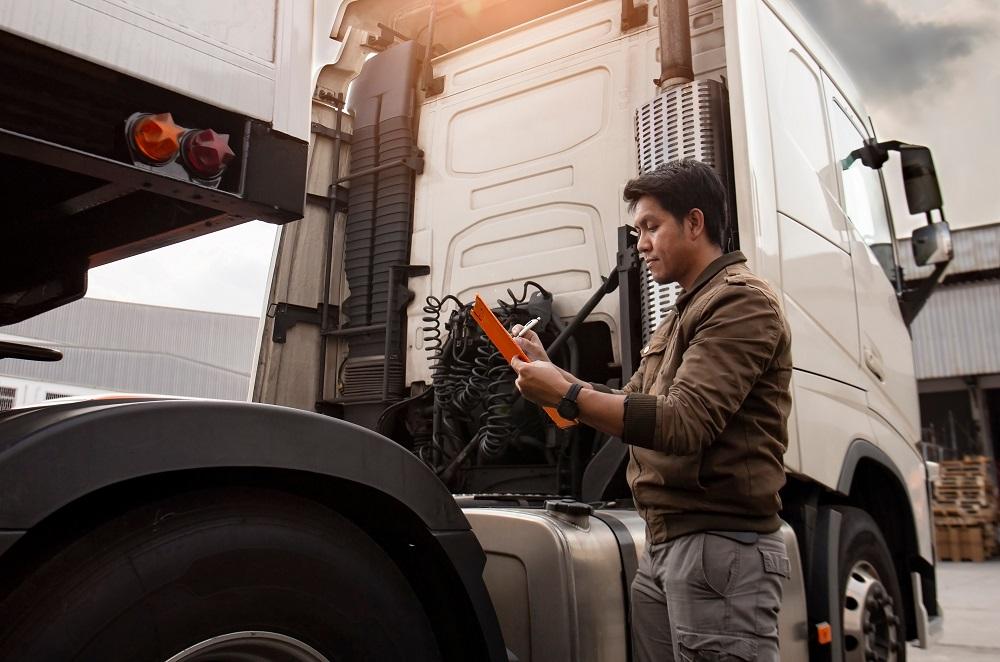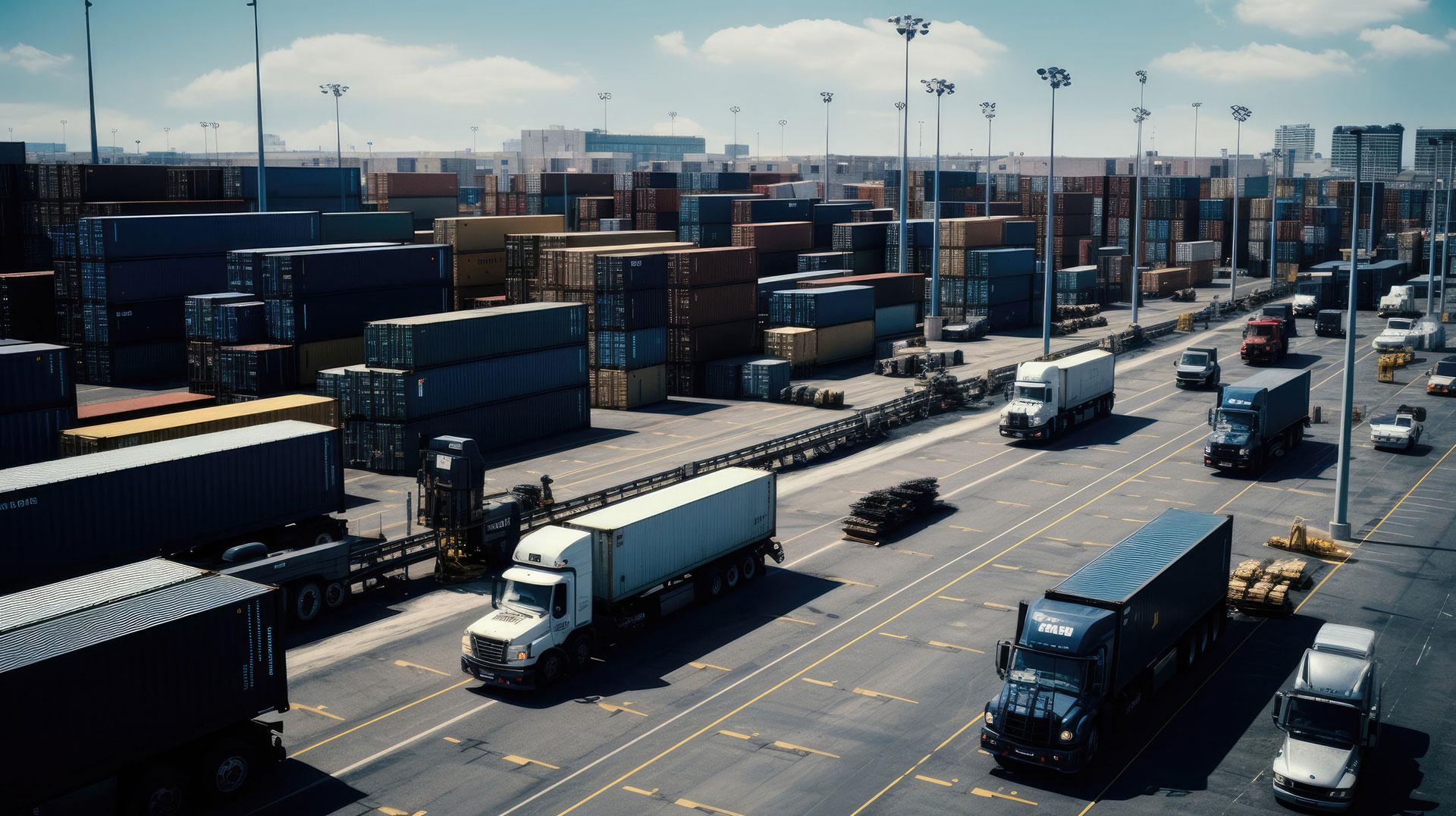The Role of Technology in Improving Efficiency in the Trucking Industry
May 27th, 2023
By Arrow Truck Marketing

From electronic logs to autonomous vehicles, technology is transforming the way goods are transported across the country. Here are 10 key technological advancements having a major impact on the trucking industry today and how they’re changing the way things move.
1. E-Logs
Electronic logs (e-logs) are digital versions of the traditional paper log books truck drivers have been using for decades. E-logs automate the process of recording a driver’s hours of service, making it easier for drivers and carriers to comply with regulations. E-logs have been mandatory in the U.S. since 2017 and their impact is still being determined. Some argue e-logs have increased safety and efficiency, while others claim drivers are having to make less efficient choices about time and routes because of electronic logging systems. The jury is still out on this issue.
2. GPS Tracking
GPS tracking has revolutionized the way trucking companies manage their fleets. By using GPS technology, trucking companies can track the location of their vehicles in real-time, which allows them to make better routing decisions and improve their overall efficiency. GPS tracking also helps trucking companies provide more accurate delivery estimates to their customers, which can help to improve customer satisfaction.
3. Automation
Automation is the use of technology to perform tasks that would normally require human intervention. In the trucking industry, automation has been used to improve safety and efficiency. For example, some trucks are now equipped with automatic braking systems that can help to prevent accidents. Automation is also being used to improve the efficiency of trucking operations by reducing the need for human intervention in tasks such as loading and unloading cargo.
4. E-commerce
E-commerce has had a major impact on the trucking industry by increasing demand for the transportation of goods. The rise of online shopping has led to an increase in the number of small package deliveries, which has created new opportunities for trucking companies. E-commerce has also led to the development of new technologies, such as parcel lockers and mobile delivery apps, which have made it easier for trucking companies to deliver packages to customers.
5. Autonomous Vehicles
Autonomous vehicles are vehicles that can operate without human intervention. While fully autonomous trucks are not yet commercially available, there has been a lot of progress in the development of autonomous vehicle technology. Autonomous trucks have the potential to reduce the cost of transportation and improve safety on the road.
6. On-demand Transport Services
The rise of on-demand services like Uber and Lyft has paved the way for on-demand transport services in the trucking industry as well. The concept of matching available trucks with shippers in need of transportation has enabled shippers to book available trucks on short notice. On-demand services reduce wait times and empty miles and increase efficiency, making the industry more competitive and responsive.
7. Transportation Management Systems (TMS)
TMS software allows shippers and carriers to manage their supply chain and logistics operations more efficiently. With features like real-time tracking, scheduling, and automated billing, TMS software helps reduce the time and resources needed to manage logistics. TMS can also optimize routing and scheduling, which saves time, fuel, and reduces costs. TMS is now a staple technology in the trucking industry, helping carriers and shippers optimize operations and reduce costs.
8. Safety Improvements
Over the years, trucking companies have invested heavily in technology to enhance safety. Some examples include:
Lane departure warning systems: Cameras detect when a truck is drifting out of its lane and alert the driver.
Collision avoidance systems: Radar and cameras detect obstacles in the truck’s path and can automatically apply brakes to avoid a collision.
Blind spot detection systems: Sensors detect objects in the truck’s blind spot and alert the driver.
Electronic stability control: This technology uses sensors to detect when a truck is losing control and can apply brakes to prevent rollovers.
9. Fuel Economy
Fuel is one of the biggest expenses for trucking companies. The push for fuel-efficient trucks has led to the development of technologies like the following:
Aerodynamic designs that reduce drag
Low-rolling-resistance tires that reduce friction with the road.
Engine and transmission improvements that are more fuel-efficient than older models.
Hybrid and electric trucks that use a combination of electric and diesel power and reduce fuel consumption.
10. Data Analytics
The ability to collect, analyze, and act on data is becoming increasingly important in the trucking industry. Data analytics helps companies make informed decisions on everything from maintenance schedules to route optimization. With the help of data analytics, trucking companies can identify trends, uncover inefficiencies, and optimize their operations for maximum efficiency and profitability.
The Future of Trucking
The trucking industry is rapidly changing, and the future looks bright with the promise of technology. Advancements are expected to continue. In the future, we can expect to see:
Autonomous trucks becoming more prevalent, with level 4 and 5 autonomous trucks hitting the roads in the coming years.
Electric trucks are becoming more common as the technology continues to improve and the cost of batteries decreases.
On-demand services are becoming even more efficient and cost-effective, changing the face of logistics as we know it.
Improved data analytics and machine learning capabilities that will help trucking companies optimize their operations even further.
Technology has brought about significant changes in the trucking industry, improving efficiency, safety, and reducing costs. Companies that embrace these advancements and keep their eye on the future as they weigh considerations for upgrading their fleet will stay ahead of the curve and thrive in the coming years.
Arrow Truck Sales is more than a reputable semi-truck dealer; we’re experts in the industry. If you’re interested in staying on the leading edge of trucking technology, we can help. Give us a call to learn more.

